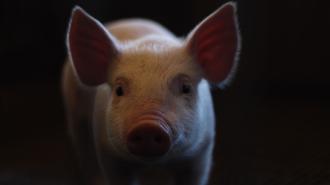The FDA may soon give the go-ahead for clinical trials involving the transplantation of pig organs into humans, the Wall Street Journal scooped from “a person familiar with the matter.”
If it comes to fruition, the move could be an important step towards addressing the country’s chronic organ shortage, which leads to 17 people a day dying in the U.S. awaiting an organ.
The WSJ report comes from an unnamed source involved in a two-day meeting of an FDA advisory committee, with officials and physicians discussing what would need to happen to move forward with the trials, Nature reports.
Duke University School of Medicine transplant surgeon Allan Kirk, who presented at the meeting, told Nature that the data supports the idea of small, focused trials with select groups of patients.
The FDA may soon give the go-ahead for clinical trials of pig organ transplantation.
The discussion comes on the heels of recent experiments that have researchers hopeful that transplants from pigs, whose organs are close analogs to humans, are a viable option.
Most recently, 57-year-old handyman David Bennett received a pig heart transplant in January 2022. Bennett, who would have died without the transplant, went on to live for just another two months with the pig heart.
However, his doctors believe the cause of death was related to a virus in the heart — which could be avoided in the future with deeper screening — and not rejection of the organ.
Organ rejection occurs when the body’s immune system attacks the donor organ as an alien presence — which it is. To prevent this from happening, recipients often must take immunosuppressive drugs, which can have adverse side effects, including vulnerabilities to infection.
Pig transplants could be an important step towards addressing the country’s chronic organ shortage, which leads to 17 people a day dying in the U.S. awaiting an organ.
Even with heavy immunosuppressants, previous attempts at animal transplants ended in rejection because the organ was just too different for the body to accept.
To get around this issue, Bennett’s team used a pig genetically modified by German company Revivicor, which edited the pig’s genome to make the organ more human-like and less likely to be rejected.
Finding the answers to crucial questions like how to best avoid pig organ rejection will require human trials, not just one-off experiments, Yale School of Medicine veterinary specialist Caroline Zeiss told Nature.
Trials could also help physicians understand how to avoid pig viruses, which breeds may be best for growing organs, and how other conditions, like diabetes, may impact the donation, Zeiss said.
We’d love to hear from you! If you have a comment about this article or if you have a tip for a future Freethink story, please email us at tips@freethink.com.
